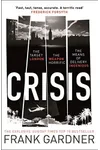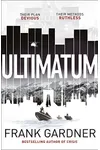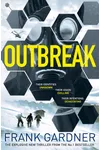Picture a British journalist who swapped banking for war zones and turned his survival story into gripping novels—meet Frank Gardner! As the BBC’s Security Correspondent, Gardner’s life reads like a thriller, from surviving a near-fatal al-Qaeda attack in 2004 to crafting spy novels that pulse with authenticity. His resilience and passion for the Middle East make him a storyteller who captivates and inspires.
Born into a world of diplomacy, Gardner’s journey from a curious kid to a global correspondent is a tale of grit and adventure. Let’s dive into the life of this remarkable man whose words, whether on air or in print, keep us hooked.
The Making of Frank Gardner
Born on July 31, 1961, Frank Gardner grew up as the son of diplomats Robert and Evelyn Gardner, moving from the UK to The Hague at age six. A chance meeting with explorer Wilfred Thesiger at 16 sparked a lifelong fascination with the Arab world. After studying Arabic and Islamic Studies at Exeter University, Gardner lived with an Egyptian family in Cairo, mastering fluent Arabic. He spent nine years as an investment banker in New York, London, and Bahrain before leaping into journalism in 1995, joining BBC World as a producer and reporter.
By 1997, Gardner became the BBC’s first full-time Gulf correspondent, later serving as Middle East correspondent in Cairo. His deep knowledge of the region and post-9/11 focus on the War on Terror set the stage for a career-defining moment—and a life-altering tragedy.
Frank Gardner’s Unforgettable Stories
Gardner’s writing spans raw memoirs and pulse-pounding fiction, all infused with his Middle East expertise. His 2006 memoir, Blood and Sand, is a Sunday Times bestseller that recounts his 25-year love affair with the Arab world, culminating in the 2004 Riyadh attack where he was shot six times by al-Qaeda gunmen. The book blends harrowing survival with heartfelt reflections, earning praise for its honesty and lack of bitterness.
In 2009, Far Horizons took readers on Gardner’s global adventures, from Arctic challenges to Somali piracy, showcasing his zest for exploration despite his wheelchair-bound life post-injury. His fiction debut, Crisis (2016), introduced Luke Carlton, a former SBS officer turned MI6 operative, in a high-stakes thriller set in Colombia. The series continued with Ultimatum and Invasion, blending real-world security insights with cinematic action. Gardner’s style—crisp, authentic, and thrilling—mirrors his reporting, making his novels unputdownable for espionage fans.
His works resonate because they’re grounded in lived experience. Whether recounting personal trauma or crafting fictional spies, Gardner’s storytelling is vivid, informed, and deeply human, reflecting themes of resilience, cultural respect, and navigating chaos.
Why Frank Gardner Matters
Frank Gardner’s impact transcends journalism and literature. After surviving the 2004 attack that killed his colleague Simon Cumbers and left him partially paralyzed, Gardner’s return to reporting in 2005 was a testament to his unbreakable spirit. He’s reported from Afghanistan to Colombia, often from a wheelchair, proving disability doesn’t dim determination. His documentaries, like Frank Gardner’s Return to Saudi Arabia, and his role as a resilience speaker inspire audiences worldwide.
As an author, Gardner brings the Middle East to life, fostering understanding through his nuanced lens. His Luke Carlton series entertains while subtly educating readers on global security. Awarded an OBE in 2005 and honored as Person of the Year by the UK Press Gazette, Gardner’s legacy is one of courage, clarity, and storytelling that bridges cultures.
- Birth Date: July 31, 1961
- Key Works: Blood and Sand, Far Horizons, Crisis, Ultimatum, Invasion
- Awards: OBE (2005), UK Press Gazette Person of the Year
Snag Blood and Sand or dive into the Luke Carlton series for a thrilling ride through Frank Gardner’s world of spies and survival!



